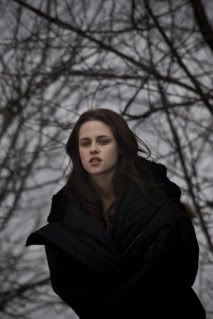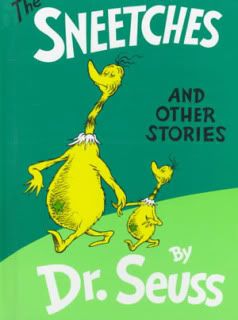
Warning: Lots of spoilers!
That’s right, I read Stephanie Meyer’s Twilight series. And you know what else? The darn thing was actually pretty entertaining. I can’t hold it up as “literature.” I can’t say I wouldn’t be concerned if my daughter gets swept away by it when she’s older. I can’t defend its overt anti-feminism and don’t even want to, really. But I am intrigued. There’s something here that got me absorbed in each book, truly enjoying them in spite of some obvious and problematic shortcomings. I wonder what it was?
I’m sure part of my enjoyment came from the exceedingly low expectations I brought to the series in the first place. I’d read plenty of acidic and mostly spot-on criticism beforehand, both published and ranted online. But then I started noticing that many smart women whose opinions I respect really love the series. And some aspects of the story sounded intriguing (Quirky, introverted heroine?! Star-crossed, passionate yearning?! Set in Forks, Washington?!). So I put the books on hold at the library and delved in, bracing myself for the worst.
Indeed, a feminist critique of this series is like shooting fish in a barrel and has already been well-established by greater minds than mine, but just to recap: Edward, the male vampire hero, basically stalks Girl Everyteen heroine Bella. The very thing that initially attracts him to her is her viability as uniquely irresistible prey. He’s in a constant state of rescuing her from her self-destructive choices, bad luck, and clumsiness. He showers her with a mix of patronizing fondness and anger at her risk-taking. She reciprocates with undying devotion and is utterly empty without him.
Meyer is a Mormon, and her beliefs and ideals are barely concealed in the series. Aside from some fast cars and the occasional allusion to wild marital sex, it’s pretty clean living in Meyer’s vampire-land. (Bella meeting Edward’s coven for the first time was eerily reminiscent of that “South Park” episode where Stan becomes friends with the Mormon family. Bella learns all about vampire history and they invite her to their family game of baseball. Seriously.)
In fact, the series reads like a parable of sorts. Bella comes to the story with a certain post-Steinem cynicism about marriage, but is won over easily enough. By Breaking Dawn, the fourth and final book in the series, she’s married at 18, living with her in-laws, deciding not to attend college, pregnant after having sex once, and blithely insisting on seeing that pregnancy through even though the half-vampire fetus is killing her (“health of the mother,” anyone?). In fact, during Bella’s pregnancy the novel completely surrenders her first person narrative voice to one of the male characters.
Ugh. Doesn’t seem to leave much to like, does it? You don’t just suspend your disbelief; you cram it into the closet and try to ignore it pounding on the door. Nevertheless . . . I can’t deny that I really enjoyed these books in spite of the problematic not-too-subtle message it sends to younger readers. Why? That's very unlike me. I'm usually a very personal-is-political kind of reader and don't tend to take these things lightly. I can't help but wonder how this series won me over?
It’s not about Edward. No, really. Edward is usually presumed to be the blind spot for women in my demographic. He’s written to be a dreamy character and played by an even dreamier actor in the film version, Robert Pattinson:

But that’s never been my type. I can recognize he’s gorgeous in the same way I recognize someone like Megan Fox is gorgeous, but truly, he doesn’t do it for me. And that “protective”/controlling thing doesn’t work for me either. My personal middle-aged-housewife-escape fantasy would involve some Jemaine Clement /Jason Schwartzman-type, with zany pop culture references and awkward irony. (Which, I suppose, is why Stephanie Meyer is Stephanie Meyer and I blog for my own amusement. But I digress.)
The storytelling in the Twilight series is good. Lots of suspense and excitement with a colorful supporting cast of vampires and townsfolk. And I wasn’t kidding about the Forks, Washington, setting being part of the appeal. In the early days of our long-distance relationship, Mr. Black and I took a wildly romantic trip to the Olympic Peninsula. (We even spent a night in pre-Twilight Forks.) Those lush, misty rainforests and rocky beaches still tap into my strongest feelings for him . . . the thrill of being reunited and swept away to the edge of the continent. It’s the perfect setting.
But more than anything else, I think the Twilight appeal for me is simply this: Adolescent nostalgia. As Jenny Turner describes in her excellent essay “The Beautiful Undead”: “Awful memories were dislodged, of being young and full of longing – a really horrible feeling, a sickening excess of emotion with nowhere, quite, to put it.” Horrible, yes. But deliciously horrible, too. Love was so intense, so raw, so fraught with superlatives and bad poetry. For us older, wiser types, the Twilight series reads like a love letter to one’s inner adolescent, hearkening a time when we were introspective misfits with vague fantasies of being counter-culturally powerful in the very way these vampires are: they can read minds, change others’ emotions, see the future, literally shield their loved ones from harm. There’s something oddly endearing about that fantasy.
I actually really like Bella. I like that from the very beginning, she’s already got one foot in the monster world. She’s awkward and self-deprecating, practically shivering with a vague sense of doom before a vampire even crosses her path. She’s introverted, dark, lonely, and a little on the masochistic side. Maybe to some people this reads like a “moody teen” caricature, but I can’t deny that it speaks to my experience. And Bella’s devotion to her boyfriend? Um . . . well . . . yes. The boyfriend himself might not do it for me, but Bella’s experience of all-consuming love is something that, unfortunately or not, rings true for me as well.
Sometimes I wonder if we violently recoil from all this teen-angst romance because we might just recognize a tiny bit of ourselves in it. A lot of readers lose patience with Bella in the second book, New Moon, in which she falls into a wounded haze after Edward abandons her (in an effort to save her from vampire-related danger, of course). But I savored it, remembering my past near-supernatural attraction to other people; that desperation to be near them every moment because somehow it seemed to set the world in motion. Whole months of my young life were defined by all-consuming infatuations, and I’ve got the mix tapes to prove it. There, I said it.
It’s nothing to be proud of. But maybe it’s nothing to be ashamed of, either. I came by it honestly. I spent much of my youth lurking somewhat nerdishly at the corners of other people’s action, fantasizing away with my books and pop culture and rich imagination, dreaming about the day when I’d have a turn to live these dreams for real. Turn that loose on a college campus and see what you get. All that erratic, untamed emotion set free. It wasn’t pretty.
It wasn’t about needing a boyfriend. It was about needing a context. I didn’t want to be in a corner anymore, but I felt positively naked out there on my own. We introverts are social creatures too, you know. But being around big groups of people can be exhausting for us. The amount of energy it takes just to show up, smile, and contribute to a conversation can be phenomenal, even when we’re having fun. You can see how, for some of us, it becomes appealing to have a smaller circle. Maybe even a circle of just two. And if you’re only going to have one other person in that circle, it might as well be someone who can meet your romantic needs as well as your social needs. Makes sense, right? One special person to connect you to an exciting, tumultuous world. That was all I wanted; all I believed I could handle.
And there were times when it actually happened. It can. Sometimes you meet your introvert-match and you find yourself swept into that sickeningly sweet whirlwind of mutual bliss. It can be gorgeous. But it doesn’t typically last. It’s an unrealistic model that can’t sustain itself. And at some point, we have to find a way to participate in the world a little more healthily. Having put ourselves back together after something like that, it’s easy to see why readers find Bella’s tenacious devotion to Edward so annoying.
But as I said, I find it endearing, too. As an older reader who's been there, you want to take Bella under your wing a little bit. But instead she’s taking you under hers, sweeping you into this bizarre fantasy world in which you actually get to have the “Edward” of your youth; all that angst, all that yearning not in vain. And even though no one ever gets her Edward, isn’t it a little interesting to imagine if you had? There’s something very superficially gratifying there.
Not only that, but giving herself over to Edward’s vampire world actually empowers Bella. How’s that for fantasy? But I do like that she finally gets to kick some ass at the end. She gets to be fierce, standing up to fight beside the others. She blows all the other vampires away with her unique vampire awesomeness, but in a very Baby-from-Dirty-Dancing way. Her power comes from her sense of love and protectiveness, and from her stubbornly unflagging devotion. In the end, she compromises nothing and gets it all. Nobody puts Bella in a corner.
I know. It’s cheesy. But it’s like this:
I was 24 when Reality Bites came out, and the movie annoyed the hell out of me at the time. It felt like a cheap, watered-down version of what I was actually living. I thought it merely skimmed the surface, threw in a few pop-culture signifiers, crammed an unrealistic ending down our throats, and slacked off into the sunset.
Fast-forward to 2006. Home alone with my newborn second baby, I flipped to Reality Bites on TV and couldn’t stop watching it. And not just because I was breastfeeding and healing from a C-section and didn’t feel like reaching for the remote. I was loving that movie! I even loved that silly wish-fulfillment ending in which Winona Ryder ends up happily coupled with the same distant, too-cool-for-this-Earth, living embodiment of male angst bullshit that most of us spent our 20’s trying to get over.
Maybe it was the postpartum hormones talking. But I don’t know. I think that somehow, from the safety of my rocking chair, in my happily stable relationship, it was a lot easier to swallow the fantasy. And so it is with the Twilight series. It works because it’s relatable, yet completely, thankfully, unrelatable. We can vicariously indulge in the exciting parts of all-consuming teen infatuation because the dangers of it can’t touch us anymore.
Now, if I can just find a way to explain that to my daughter when the time comes. . .

